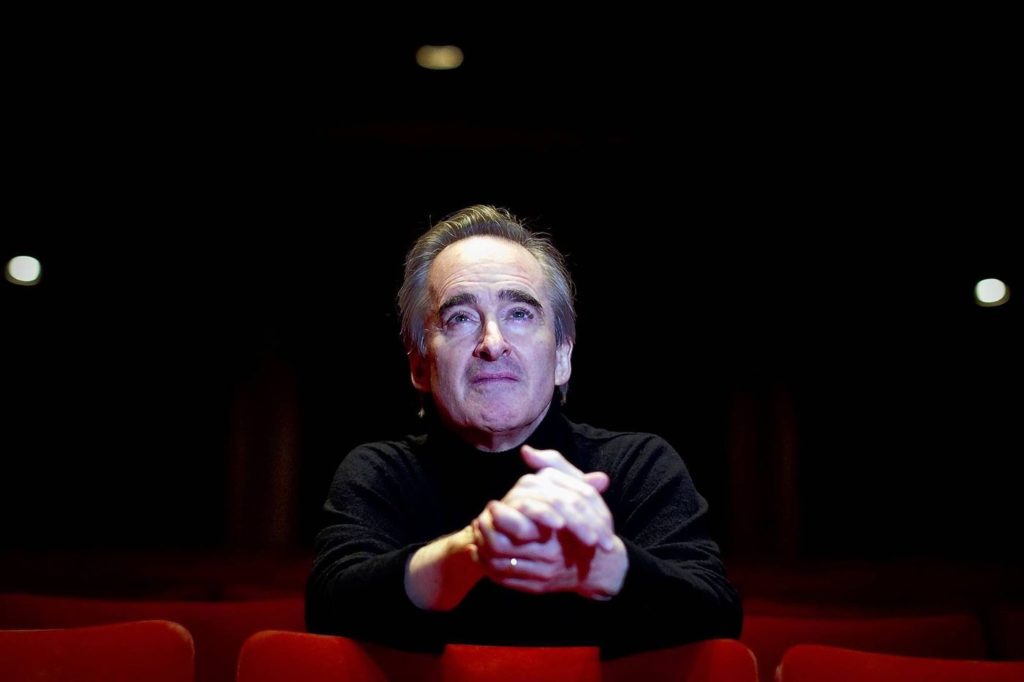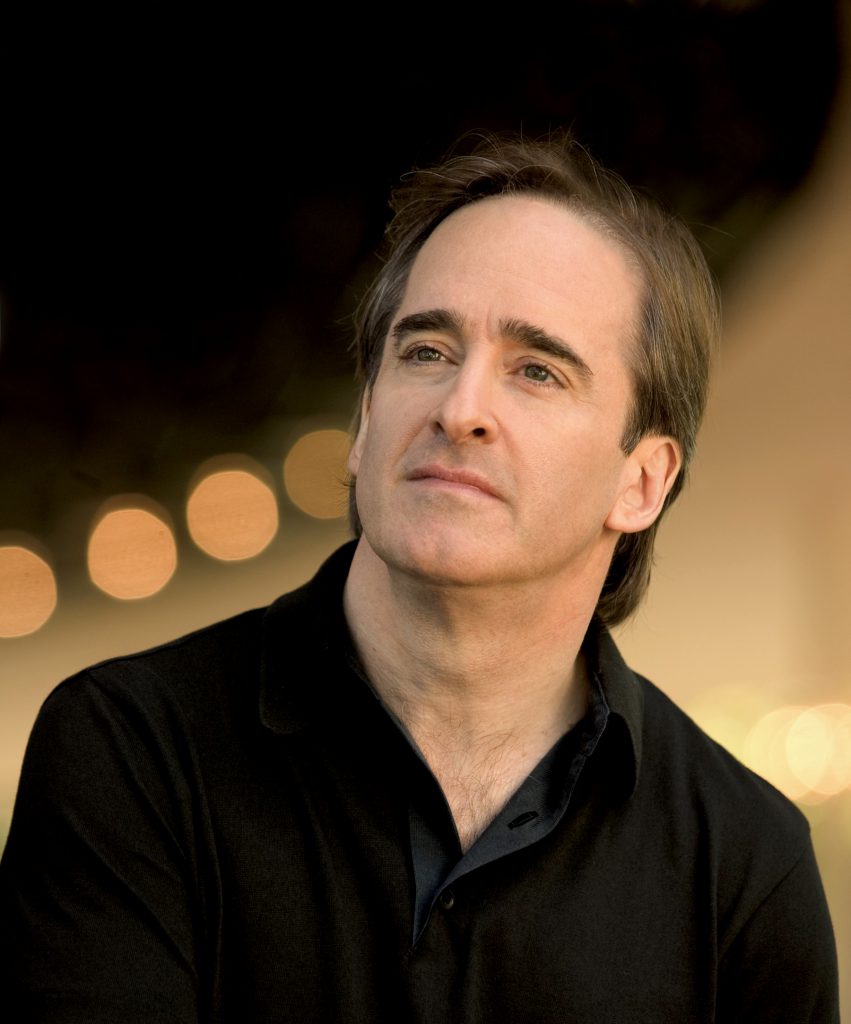The American conductor James Conlon was still a teenager when he had an experience that any classical-music enthusiast would envy, and which he maintains was life-changing: In September 1967, he attended two recitals at Hunter College given by the singular English tenor Peter Pears and his partner in life and art, the composer Benjamin Britten. Those ancient memories have resurfaced lately because this year is the centenary of Britten’s birth, and Mr. Conlon has made honoring him a priority. The cause has brought him back to the Metropolitan Opera for the first time since 2009, to lead the company’s sole nod to Britten this season, a revival, beginning Friday, of Tim Albery’s 1996 production of “A Midsummer Night’s Dream,” based on Shakespeare’s play and unseen in the house since 2002.
“The first night, they did Schubert’s ‘Winterreise’; the second was Schumann’s ‘Dichterliebe’ and songs by Britten,” Mr. Conlon recollected late last week while sitting in the conductor’s room at the Met following a day of rehearsals. “Two things really struck me. The first was that Peter Pears was absolutely charismatic in person. The second was that I had never heard anyone touch a keyboard like Britten did. It was just exquisite—the velvet tone, the fluidity.”
The recitals followed Mr. Conlon’s first encounter with “Peter Grimes,” arguably Britten’s most enduring work, which he heard in Tyrone Guthrie’s acclaimed production at the Met in early 1967. “I fell in love totally that night,” Mr. Conlon, age 63 and a native of Queens, N.Y., remembered, singling out the tenor Jon Vickers, who sang the title role. “That opera became everything to me. The only piece of Britten’s I knew before that was ‘The Young Person’s Guide to the Orchestra.’ You couldn’t easily get Britten’s scores in those days, so I went to the library and borrowed every recording and score I could. And then it was just one thing after another.”
The conductor’s enthusiasm has apparently never waned, and in recent years no one in the U.S. has championed Britten’s music more assiduously than Mr. Conlon. Though the Met is the most glamorous venue at which he will salute the composer this season, he undertakes the bulk of this task in Los Angeles, where he has been music director of the Los Angeles Opera since 2006. His efforts culminate in February, when he begins a run of “Billy Budd” there. But he appears even more excited by concerts he will lead on Britten’s birthday, Nov. 22, and throughout that weekend. The programs include Britten’s epic “War Requiem”—a work of astonishing reconciliation—but even more worthy of comment are the musicians he will direct. Mr. Conlon has been developing ties with students at the University of Southern California’s Thornton School of Music and the Colburn Conservatory, and he is to lead young artists from both institutions over the long birthday weekend.
If this love-fest with Britten seems excessive, Mr. Conlon insists otherwise. “He is the most important British composer of the 20th century,” the conductor said. “He is the man who revived British opera, which had been dormant since Purcell’s death. And he could compose in many genres, not just one. Among 20th-century composers, he was amazingly fertile and wrote equally well for orchestra, chamber groups, piano and—most of all—voice. The church music is extraordinary. He was an absolute genius in setting the English language to music—not an easy task by any means.”
Mr. Conlon would rather not articulate what makes Britten’s music special—he prefers to let the scores speak for themselves—but when pressed, he said: “Britten writes music that is illustrative; it inspires images. His music is expressive and lyrical and dramatic. It is hypnotic. This is not music that screams at you, but rather music that draws you in. And that’s the reason his music’s popularity has sometimes lagged behind its great qualities.”
A particular appeal of “A Midsummer Night’s Dream,” which had its premiere in 1960, is the libretto, fashioned by Britten and Pears. “Their devotion to Shakespeare was so great that their challenge was to condense the play dramatically to the proportions an opera needs to be,” Mr. Conlon said. “And then Britten managed to write music that was worthy of Shakespeare without either overwhelming the poetry or being so unobtrusive as to stay in the background. It’s a perfect marriage. To me, it’s the greatest operatic rendition of a Shakespeare play in the original language. To have set Shakespeare so brilliantly, so perfectly, is a major accomplishment.”
Mr. Conlon is naturally chary of ranking composers, yet he grants that Britten earns comparison with some of opera’s greatest figures on at least one level. “Verdi, Wagner and Britten have something in common,” the conductor maintained. “But it’s not in their music nor in their personalities. What they share is that they are the quintessence, the zenith, of their national operatic cultures. Benjamin Britten is specifically English in the same way that Wagner is specifically German and Verdi specifically Italian.”
That said, he acknowledges that novice listeners may not find Britten’s music instantly appealing. “Britten is an acquired taste,” he conceded. “You have to enter his world. And if you get into it, you will peer into that amazing crystal ball, or whatever it is, on a permanent basis. Once you are fascinated, you will continue to be fascinated—but it takes some doing.”
The centenary has given Mr. Conlon an opportunity to advance the case for Britten more intensely than usual. “I’m taking advantage of it to put him more in the forefront than might be possible at another time,” he said. “Americans don’t need somebody to play more Brahms or Beethoven. They need to know that there is very important music out there that they’re not listening to—because our ears and spirits need constant renewal.”
Mr. Mermelstein writes for the Journal on classical music, film and television.
A version of this article appeared October 10, 2013, on page D5 in the U.S. edition of The Wall Street Journal, with the headline: A Battle for Britten.


